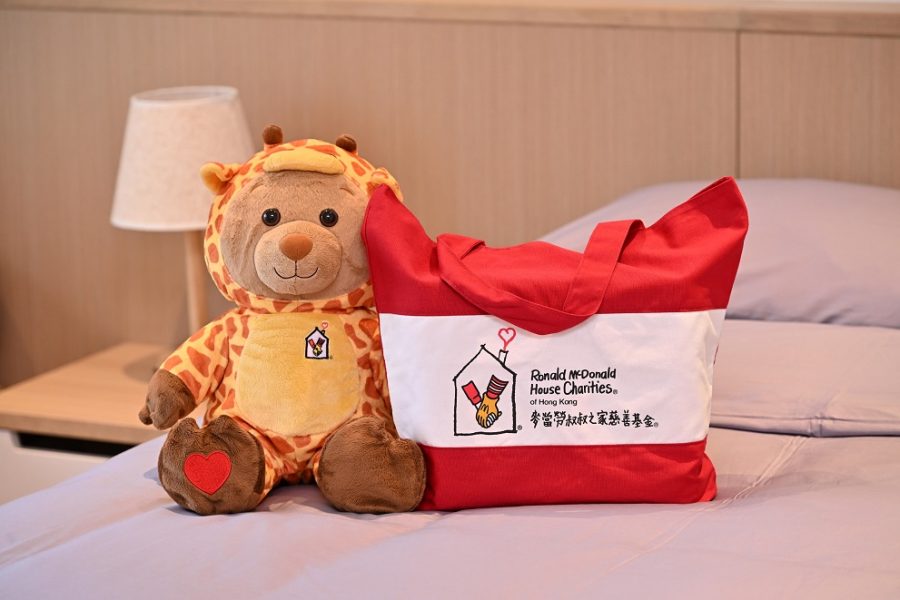The presence and care of family members play a crucial role in supporting sick children on their journey to recovery. At the same time, due to the demand of extra care for sick children, their siblings at home often do not get the attention they need from their parents. In some cases, they may be sent to stay with relatives temporarily. To help these separated families, Ronald McDonald House Charities (RMHC) Hong Kong offers a haven where sick children and their families can call home. Located right by the hospital, the accommodation boasts well-equipped facilities, a clean environment and ultimate comfort. By giving families in need “a home away from home”, RMHC Hong Kong aims to foster stronger family bonds and support sick children in conquering their battles.
A charity for families with sick children
RMHC was established in Philadelphia, USA in 1974. It all began when Fred Hill, the tight end for the Philadelphia Eagles, learnt that his three[1]year-old daughter Kim had been diagnosed with leukaemia and needed treatment at the Children’s Hospital of Philadelphia. Fred and his wife were determined not to leave their daughter’s side; yet, their home was far away, and they had no choice but to make the hospital their temporary home to be close to Kim. During this difficult time, Fred noticed that many other parents also had to endure the stress of long commutes. Dr. Audrey Evans, head of the paediatric oncology unit at the Children’s Hospital of Philadelphia, recognised the immense need for support and care for families with sick children as well. Together, they envisioned building a temporary home for these families near the hospital and launched a fundraising campaign. With the generous support of McDonald’s owners in Philadelphia, RMHC and the first Ronald McDonald House (RMH) were established. Today, RMHC has grown to over 380 chapters worldwide, all united by the shared purpose of “Family-centred Care” and providing services to families in need over the past 50 years.
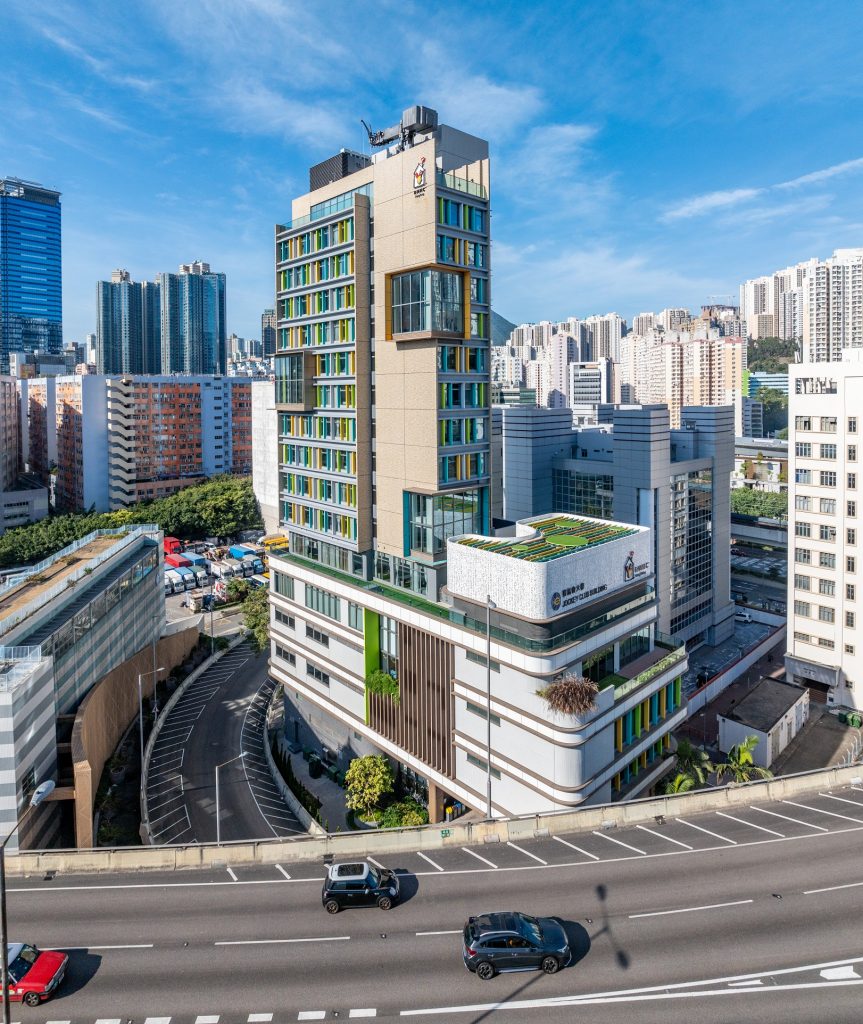
Home is where your family is
RMHC has served children with cancer, heart disease, kidney disease, bone marrow transplants or rare diseases, as well as cases who have undergone major surgeries. RMHs provide affordable accommodation services for child patients and their families who require frequent visits to the hospital for as low as HK$100 per day. Dr. Francesca Sin, CEO of RMHC Hong Kong, shares, “A lot of the families who stay with us come from low-income backgrounds and face cramped and challenging living conditions. They may live in densely populated areas or have many family members living together, which hampers the recovery of sick children. Moreover, their homes are often located in remote areas, resulting in several hours of commutes to and from the hospital. Through referrals by hospital social workers or doctors, these families can stay at the RMH in Sha Tin, situated near the Prince of Wales Hospital, or at the Kwun Tong House, which is conveniently located near the Hong Kong Children’s Hospital. These accommodations allow parents to focus on caring for their children by alleviating their travel time and financial strain, offering much-needed relief from the stress and negative emotions that come with battling severe illnesses.”
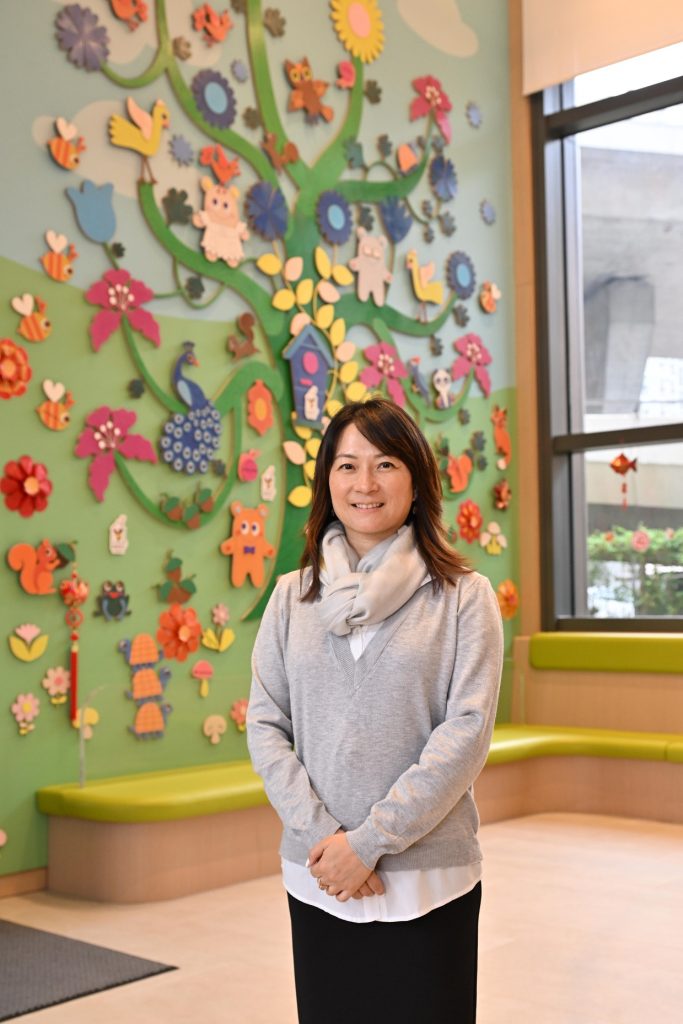
Close proximity of the Kwun Tong House to the Hong Kong
Children’s Hospital Hong Kong’s first RMH was set up near the Prince of Wales Hospital in 1996. Boasting 23 rooms, it was the first RMH to open its doors in Asia. Following the establishment of the Hong Kong Children’s Hospital in Kai Tak in 2018, the second RMH was built in Kwun Tong. Located just a 10-minute drive away from the Hong Kong Children’s Hospital, it serves as a haven for sick children who require treatment at the hospital and their families. Completed in November last year, the construction of the Kwun Tong House was made possible through the generous sponsorship of the Hong Kong Jockey Club Charities Trust. This state-of-the-art building offers a wide range of amenities, comprising 66 rooms across 16 floors and providing accommodation for up to 260 people at a time. Apart from the basic rooms for up to four individuals, there are also 10 accessible rooms designed for wheelchair users. Additionally, six special-needs rooms are available for families with children who require bed rest after receiving bone marrow transplants. The House features various communal spaces to foster a sense of community and rapport among families, including a shared living room, kitchen, laundry room, family library, multi-purpose activity room, music room, as well as spaces for play and arts and crafts.
The Kwun Tong House is designed under the theme of “Gift of Love”, taking the form of a gift box to symbolise a heartfelt present to families with sick children. The House utilises floor-to-ceiling windows, soft colour schemes and nature-inspired wooden furniture to cultivate a bright, serene, comfortable and relaxing atmosphere. Creating a sense of “happiness” and a “caring” place are the two guiding principles for the interior design. Several volunteer artists and charitable organisations were invited to create murals and decorate different corners of the building. A passionate model train and aircraft enthusiast also donated a large-scale indoor model train, measuring 103 metres in length. It operates every hour on the third floor, representing the child residents’ freedom to explore the world.
A magical trick to reduce anxiety in new child residents
Children may feel anxious when they encounter unfamiliar environments for the first time. To help newly arrived sick children and their siblings feel more at ease, the RMH offer a range of support services. In addition to providing guided tours to introduce them to the building’s facilities, nearby transportation options and everyday tips, the Kwun Tong House has a magical trick up its sleeve – the enchanting Magic Room on the third floor. A popular spot for welcoming new residents, this room features a double-door design, creating an air of mystery. A special coin is required to enter the larger door. Once inside, the room is filled to the brim with an array of brand new toys that children and their siblings can choose as welcome gifts or birthday presents. To alleviate feelings of loneliness that children may experience during their stay, there are dedicated volunteers to spend quality time with them as Play Buddies. Dr. Sin points out that families often play and chat with one another in the communal spaces during lunch and dinner, fostering strong bonds among neighbours. “At the Sha Tin House, the families would each cook a dish and have a potluck together like a big family,” says Dr. Sin.
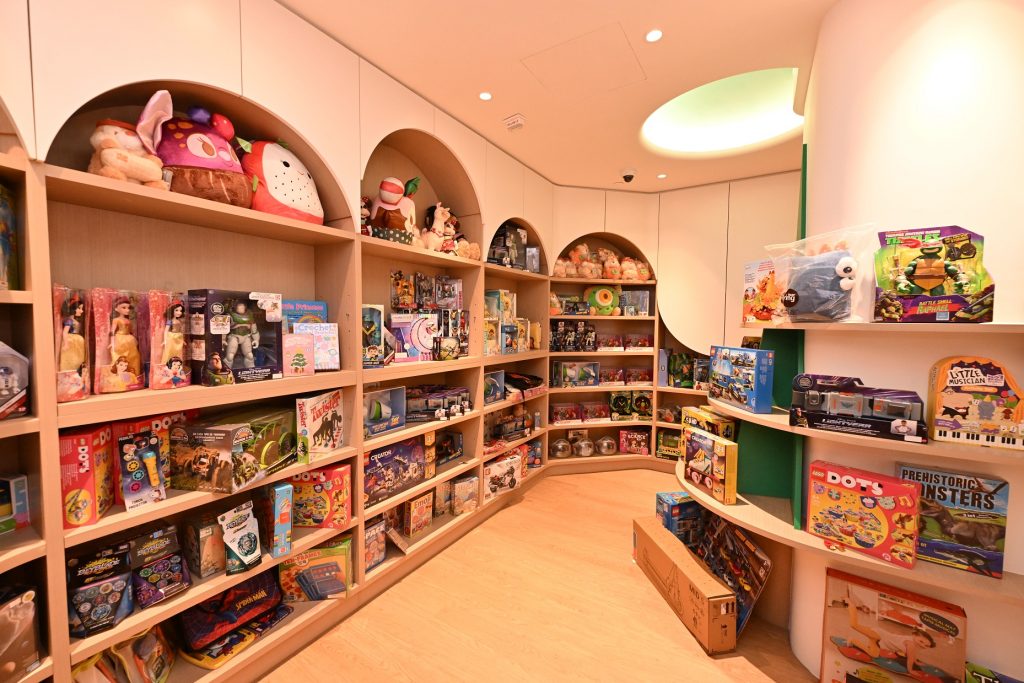
A strong rapport among neighbours
Dr. Sin recalls a recent case that beautifully exemplifies the community spirit among residents. Chi Yuen, a resident of the Kwun Tong House, was diagnosed with acute leukaemia at the age of four. Shaken by this devastating news, his mother felt overwhelmed by the daunting task of caring for him alone. During the early stages of his illness, Chi Yuen had to make frequent trips between his home and the hospital. His mother was immensely stressed as she juggled household chores, cooking and caring for him. Thankfully, through a doctor’s referral, Chi Yuen and his mother were able to secure accommodation at the RMH in Shatin. This opportunity introduced them to a compassionate community of parents with similar circumstances and backgrounds. They formed a tight-knit support system, encouraging and sharing their stories with one another. Knowing that Chi Yuen’s mother had to take care of her son alone, the other parents were willing to step in and lend a helping hand. The support from fellow travellers on this difficult journey became a source of strength and inspiration for Chi Yuen’s mother, empowering her to face the road to recovery alongside her son. When the Kwun Tong House was opened at the end of last year, Chi Yuen and his mother moved from Sha Tin to the new facility to be closer to the Hong Kong Children’s Hospital, where he continues to receive treatment. The convenience and accessibility of the RMHs have alleviated the burdens of caregiving on Chi Yuen’s mother, giving her a renewed sense of optimism and gratitude on the journey towards recovery. She has also taken the opportunity to instil in Chi Yuen the importance of helping others whenever he can in the future.
Many families who previously stayed in the RMHs have been more than happy to become Love Companions. They return to guide the new family residents during activities, sharing their personal experiences to offer encouragement and support. Moreover, the Houses provide social and mental support for children and parents of different age groups whilst boosting their resilience through a range of diverse activities. Past events include yoga classes, tutoring sessions for sick children and their siblings, as well as engaging musical instrument and art classes. In addition, Dr. Sin aspires to expand the Day Pass Programme offered at the Sha Tin House to the Kwun Tong House, offering a “sanctuary for the soul” for families who do not require housing. This service allows parents to rest and alleviate stress in a comfortable and tranquil environment while waiting for their children to complete their treatment at the hospital.
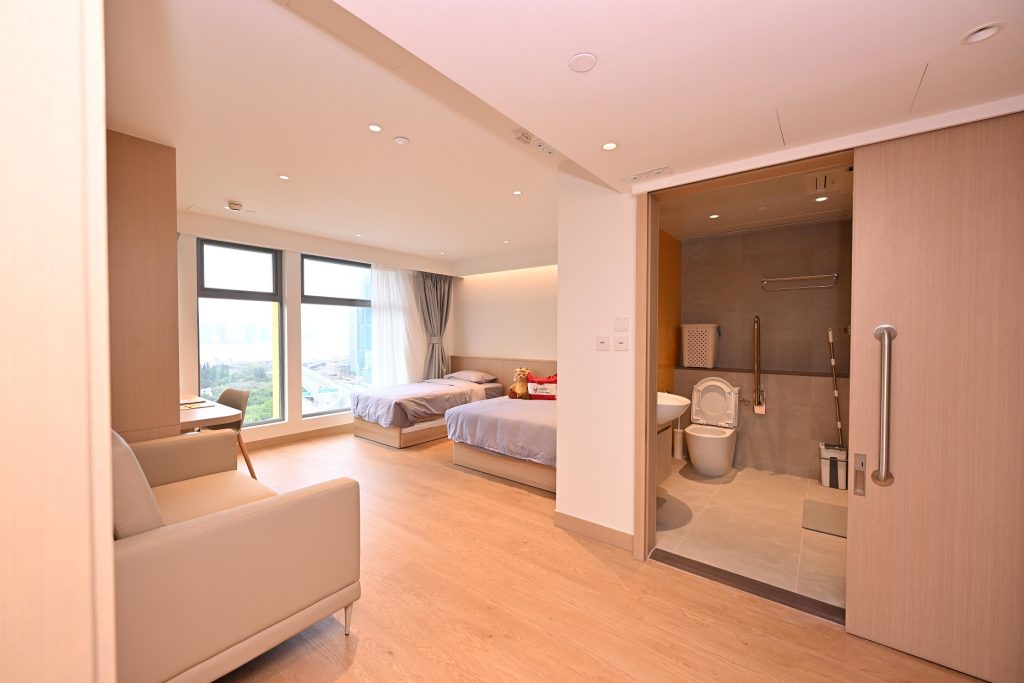
A backer of RMHC in Philadelphia 50 years ago, McDonald’s has now become RMHC founding mission partner. Despite McDonald’s regular donations, RMHC remains an independent non-profit organisation and is not directly affiliated with the restaurant chain. In fact, RMHC relies heavily on public donations to sustain its daily operations. Your participation and support are welcomed at RMHC’s charity raffle, organised every summer. In addition to monetary donations, interested parents can volunteer at the second RMH to support families of sick children with concrete action. To introduce students to RMHC’s work, schools can sign up for the charity’s upcoming urban orienteering fundraising campaign, scheduled in the fourth quarter of this year. If you would like to cheer up the sick children staying with RMHC, feel free to send your words of encouragement via email or Facebook Messenger, or donate your toys. Yellow Bus will help deliver your messages and donations.
Feel free to make your donation by logging in to RMHC Hong Kong’s website.

